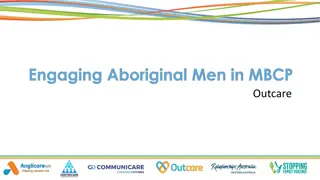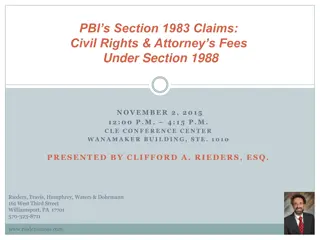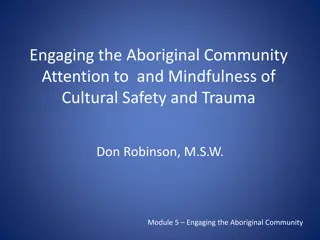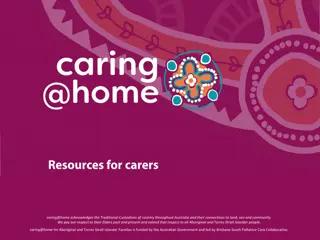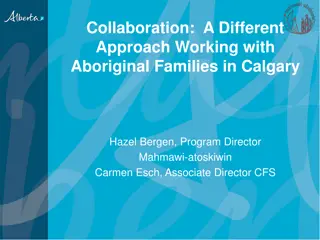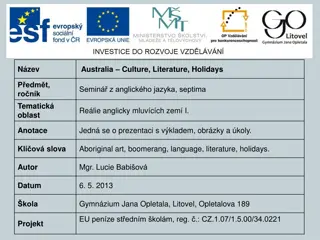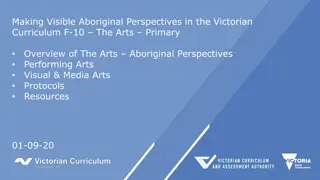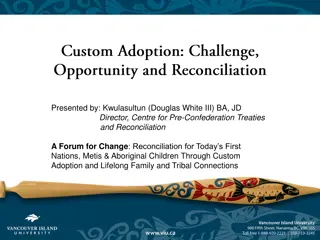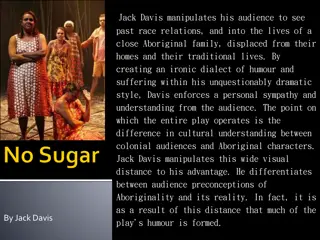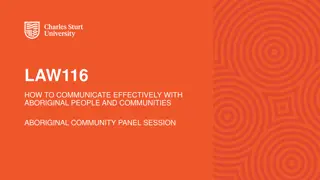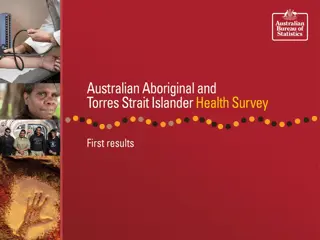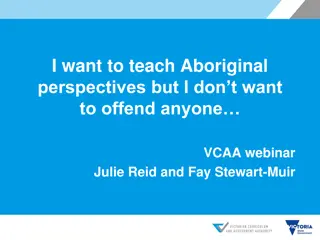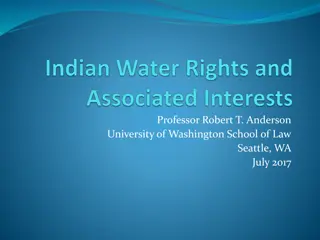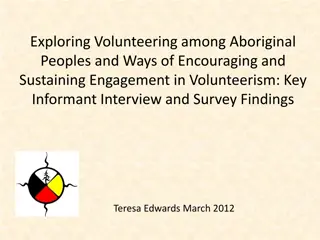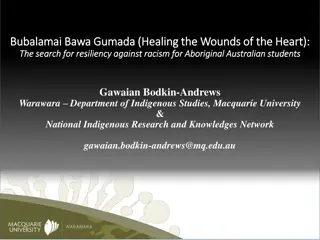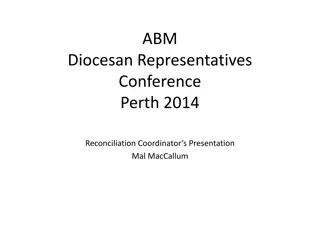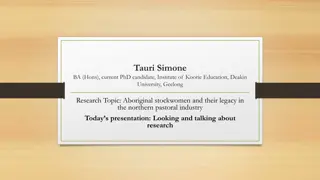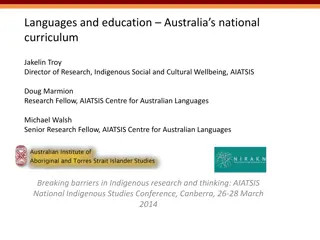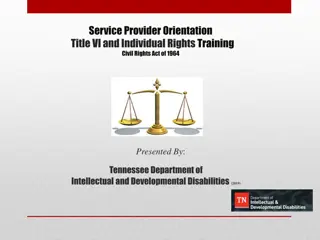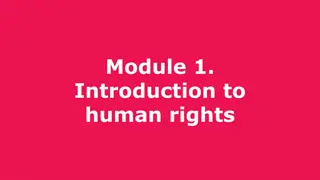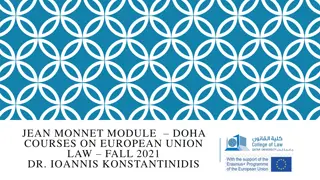Approaches to the study of Human Rights
The Marxist perspective on human rights emphasizes social rights over individual rights, viewing the full realization of self within society. Marx connects bourgeois society with human rights, highlighting how exploitation under capitalism alienates individuals. In contrast, the Third World perspect
5 views • 19 slides
Promoting Children's Rights in Education for Scotland's Learners
Raise awareness about Children's Rights, the United Nations Convention on the Rights of the Child, and how to embed them in education. Explore the importance of developing a culture that upholds rights-based practices and supports children in claiming their rights. Reflect on professional standards
1 views • 26 slides
Understanding Human Rights: Overview and Evolution
Human rights encompass various aspects such as human needs, generations of rights, individual status, and the indivisibility of rights. Dr. Anna Ledzi ska-Simon discusses the translation of human needs into rights, the historical evolution of rights across generations, individual rights according to
3 views • 17 slides
Understanding Human Rights in Queensland Government Work
The Human Rights Act of 2019 in Queensland outlines protected rights such as equality, freedom of expression, and fair trial. All public service employees must adhere to these rights, ensuring decisions and actions respect human rights. This act applies to everyone in the Queensland Government, with
2 views • 13 slides
Understanding the Basic Concept of Human Rights in Modern Jurisprudence
Human rights are natural and inalienable, essential for human life, based on universal principles. The concept of human rights is both simple and complex, requiring societal development and political will for implementation. Rooted in natural law theory, human rights have evolved from natural law to
1 views • 24 slides
Test Your Knowledge: The Big Children's Rights Quiz
Test your knowledge of children's rights with "The Big Children's Rights Quiz." The quiz includes true or false questions related to the United Nations Convention on the Rights of the Child, government responsibilities, the importance of rights, and the concept of Duty Bearers. Explore these thought
0 views • 24 slides
Legal Rights and Options for Regional Center Clients in California
This document discusses the legal rights and options available for adult regional center clients in California, focusing on clarifying their rights, reviewing support systems, exploring alternatives to conservatorship, and explaining the conservatorship process. It also covers children's and adults'
1 views • 35 slides
Reflection on Human Rights and Criminals
Explore the complex question of whether criminals should have human rights, delving into the distinctions between absolute and non-absolute rights, and the impact of child labor on human rights. Consider the removal of certain rights from criminals and engage in critical thinking exercises regarding
1 views • 19 slides
Impact of English Colonization on Aboriginal Rights and Health in Australia
English colonization in Australia had a profound impact on current Aboriginal basic rights, health, literacy, and language. The arrival of Europeans led to the decimation of the Aboriginal population through diseases like smallpox, displacement from their lands, loss of cultural practices, and suppr
2 views • 9 slides
Civil Rights Training Overview for SMP Participants
This civil rights training presentation covers the goals of civil rights, discrimination, protected classes, examples of discrimination, components of civil rights compliance, and the importance of equal access for all participants in the SMP program. It emphasizes equal treatment, knowledge of righ
0 views • 36 slides
Insights on Engaging Aboriginal Men in FDV Program
Providing valuable insights and context on effectively engaging Aboriginal men in a Family and Domestic Violence (FDV) program. The program focuses on increasing safety for victims and children, working with 49 Aboriginal men since March 2017, and offering psycho-educational group sessions to addres
0 views • 13 slides
Challenges and Progress in 1920s American Civil Rights Movement
The 1920s in America saw significant changes in civil rights, women's movement, and prohibition. Civil rights encompass personal freedoms guaranteed by the U.S. Constitution, including freedom of speech, voting rights, and protection from discrimination. Violations of civil rights have occurred thro
1 views • 42 slides
Understanding Section 1983 Claims and Civil Rights Attorney Fees
Section 1983 of the Civil Rights Act allows individuals to seek redress for violations of their constitutional rights by persons acting under state law. This provision does not create new rights but provides remedies for existing rights. The history of Section 1983 dates back to 1871 and has been in
0 views • 27 slides
Evolution of Human Rights: From Ancient Times to Modern Era
Throughout history, ideas of rights and liberty have evolved, leading to the recognition of universal human rights in the modern sense. The concept of human rights can be traced back to significant historical events such as the English Bill of Rights, the Virginia Declaration of 1776, and the French
0 views • 7 slides
Human Rights and Citizenship Rights in Leisure, Sport, and Tourism: A Historical Perspective
This text delves into the intersection of human rights, citizenship rights, and leisure activities like sports and tourism. It explores the definitions, history, and declarations related to human rights, emphasizing the importance of allowing individuals the freedom to pursue leisure activities with
0 views • 20 slides
Addressing Trauma and Cultural Safety in Engagement with the Aboriginal Community
This module emphasizes the importance of engaging the Aboriginal community with cultural safety and trauma awareness. It highlights involving key stakeholders like Elders and diverse community representatives in surveys, acknowledging past traumas due to colonization, and understanding complex traum
0 views • 13 slides
Overview of International Human Rights Law and Treaties
This comprehensive overview delves into the foundations of international human rights law, exploring key documents such as the Universal Declaration of Human Rights, the International Bill of Rights, and various human rights treaties addressing discrimination, women's rights, children's rights, migr
0 views • 27 slides
caring@home Acknowledges Traditional Custodians with Respect
Caring@home acknowledges the Traditional Custodians of country throughout Australia and their deep connections to land, sea, and community. The program pays respect to the Elders past and present, extending this respect to all Aboriginal and Torres Strait Islander people. Funded by the Australian Go
0 views • 10 slides
Empowering Aboriginal Families Through Collaborative Practices in Calgary
Explore the evolution of collaborative practices with Aboriginal families in Calgary through initiatives like the Mahmawi-atoskiwin alliance. Discover the principles guiding this approach, including cultural sensitivity, self-determination, and holistic strategies, leading to positive outcomes and i
0 views • 27 slides
Exploring Australian Culture: Aboriginal Art, Literature, and Holidays
Discover the rich cultural heritage of Australia through its Aboriginal art, literature, and holidays. Learn about Aboriginal culture, traditional musical instruments like the didgeridoo, famous Australian writers, and significant holidays such as Australia Day and Anzac Day.
0 views • 8 slides
Journey of Reconciliation: Insights from David Perley of Tobique First Nation
In his compelling words, David Perley emphasizes the importance of reconciliation between Aboriginal and non-Aboriginal peoples in Canada. He highlights the need for awareness of the past, acknowledgment of harm, atonement, and action for change to establish respectful relationships. Perley's messag
0 views • 12 slides
Exploring Aboriginal Perspectives in Victorian Curriculum: Arts Integration
Enhance educational practices through the incorporation of Aboriginal perspectives in the Victorian Curriculum, specifically focusing on the Performing Arts and Visual & Media Arts. This integration emphasizes the importance of acknowledging traditional custodians, reclaiming indigenous culture thro
0 views • 39 slides
Addressing Intergenerational Crisis Through Custom Adoption and Legal Recognition
The presentation emphasizes the importance of recognizing ancestral laws and customs of Aboriginal peoples in addressing the intergenerational crisis faced by First Nations, Métis, and Aboriginal children. It explores the history of custom adoption, Indigenous traditions, and legal provisions. Focu
0 views • 28 slides
Understanding Cultural Divide in "No Sugar" by Jack Davis
Jack Davis manipulates his audience's perception of race relations and delves into the lives of an Aboriginal family, displaced from their traditional homes. By using humor and suffering through an ironic lens, Davis evokes sympathy and understanding from the audience. The play focuses on the cultur
0 views • 11 slides
The Significance of Human Rights in the Modern World
Human rights are fundamental rights that belong to all individuals, are inalienable, indivisible, interconnected, and should be respected without prejudice. The Universal Declaration of Human Rights, adopted in 1948 after WWII by the United Nations, is a crucial milestone document emphasizing human
0 views • 5 slides
Effective Communication with Aboriginal People and Communities Panel Discussion
Learn how to communicate effectively with Aboriginal people and communities through this panel session. The presentation covers topics such as acknowledging traditional custodians, cultural safety, respectful language usage, and the importance of Yindyamarra Winhanganha in education. Gain insights f
0 views • 15 slides
Aboriginal and Torres Strait Islander Health Survey Overview
The Australian Aboriginal and Torres Strait Islander Health Survey encompasses a sample size of 7,700 households and 12,300 individuals, focusing on various aspects including health conditions, health-related actions, cultural identification, discrimination, physical measurements, dietary recall, an
0 views • 20 slides
Incorporating Koorie Cross-Curricular Protocols in Victorian Schools
Explore the significance of including Aboriginal perspectives in the curriculum through Koorie Cross-Curricular Protocols for Victorian government schools. Learn about acknowledging the Traditional Owners, mandatory content, optional elements, and principles guiding respectful delivery of Aboriginal
0 views • 29 slides
Embracing Aboriginal Perspectives in Education
Explore the significance of incorporating Aboriginal perspectives in education while ensuring cultural sensitivity. Gain insights on teaching methodologies, mandatory and optional content, and fostering a respectful learning environment. Overcome the fear of causing offense and embrace the richness
0 views • 31 slides
Overview of Indian Water Rights Rooted in Federal Law
Indian water rights are deeply rooted in federal law, including principles such as aboriginal title and treaties. The conflicts between Indian and non-Indian rights have led to lengthy litigations and settlements. From common law roots to state water laws, the historical development of water rights
0 views • 30 slides
Challenges in First Nations & Aboriginal Housing Research
The slides touch upon negligence and biases in data collection related to First Nations and Aboriginal housing in Canada. They explore trends in urban Aboriginal homelessness, bureaucratic neglect, and different approaches to Indian-state relations. The content also delves into historical studies on
0 views • 19 slides
Enhancing Transparency in Human Rights Performance Measurement
This information focuses on initiatives like the Human Rights Measurement Initiative (HRMI) that aim to provide new data for researching and advocating human rights issues globally. The HRMI project, founded in 2015, collaborates with various stakeholders and is funded by philanthropic grants. It em
0 views • 19 slides
Understanding Volunteerism among Aboriginal Peoples
Exploring Volunteerism among Aboriginal Peoples focuses on key informant interview and survey findings regarding the perception, benefits, social outcomes, and challenges of volunteering within Aboriginal communities. The research delves into the cultural significance of volunteering, recruitment an
0 views • 21 slides
Understanding Racism and Resilience in Aboriginal Australian Students' Education
Explore the complexities of racism and resilience among Aboriginal Australian students through a critical examination of cultural perspectives, epistemological racism, and the manifestations of modern and old-fashioned racism in education settings.
0 views • 35 slides
Unveiling the Tragic Story of Yagan: ABM Diocesan Representatives Conference Presentation Recap
The presentation at the ABM Diocesan Representatives Conference in Perth 2014 led by Reconciliation Coordinator Mal MacCallum shed light on the poignant tale of Yagan, an iconic figure in colonial-Aboriginal relations in Western Australia. Yagan's demise in 1833 marked a turning point, catalyzing a
0 views • 20 slides
Indigenous Research Approach: Respecting Aboriginal Knowledge
Simone Tauri, a Ph.D. candidate, presents her research on Aboriginal stockwomen's legacy in the pastoral industry. Her approach combines Western paradigms with Indigenous knowledge systems, emphasizing respectful relationships and the exchange of knowledge through yarning. She advocates for using cu
0 views • 16 slides
Preserving Australian Indigenous Languages in Education
The development of the Framework for Aboriginal Languages and Torres Strait Islander Languages in the Australian Curriculum aims to give equal representation to Australian languages alongside other world languages in schools. This initiative helps preserve, document, and maintain indigenous language
0 views • 28 slides
Understanding Human and Civil Rights in DIDD Services
Protecting the rights of individuals receiving Department of Intellectual and Developmental Disabilities (DIDD) services is essential. This training covers Title VI and individual rights under the Civil Rights Act of 1964, emphasizing equality and access to programs regardless of race, color, sex, d
1 views • 31 slides
Understanding Human Rights: Module 1 Overview
This module serves as an introduction to human rights principles, instruments, and monitoring mechanisms. It covers the definition of human rights, the Universal Declaration on Human Rights, key principles, and state obligations. Human rights are universal legal guarantees that protect individuals a
0 views • 21 slides
EU Charter of Fundamental Rights and European Convention on Human Rights Overview
The course module on European Union Law in Doha focuses on the EU Charter of Fundamental Rights and its relationship with the European Convention on Human Rights. It covers topics such as the EU's accession to the Convention, external action on human rights, and the differences between the Charter a
0 views • 26 slides










